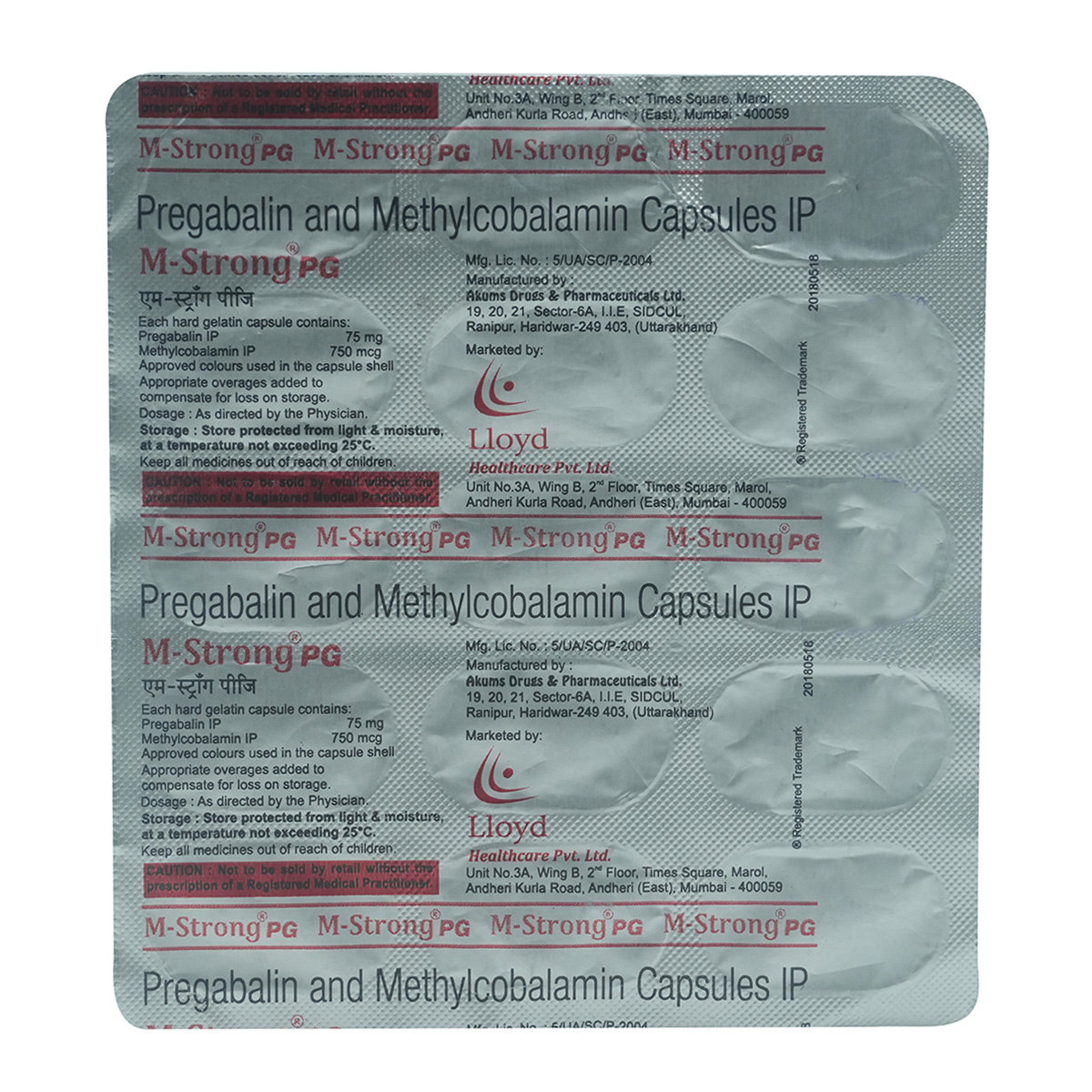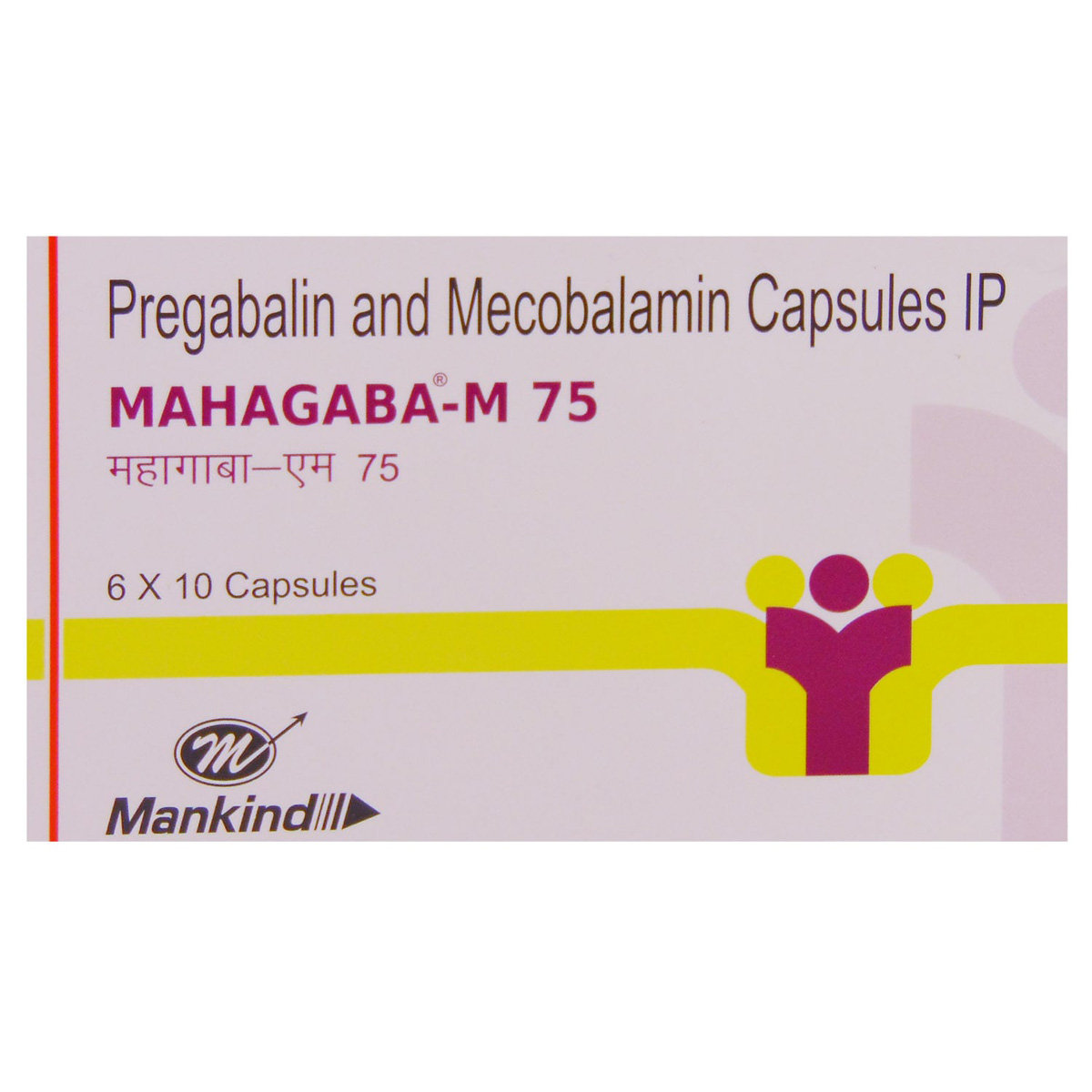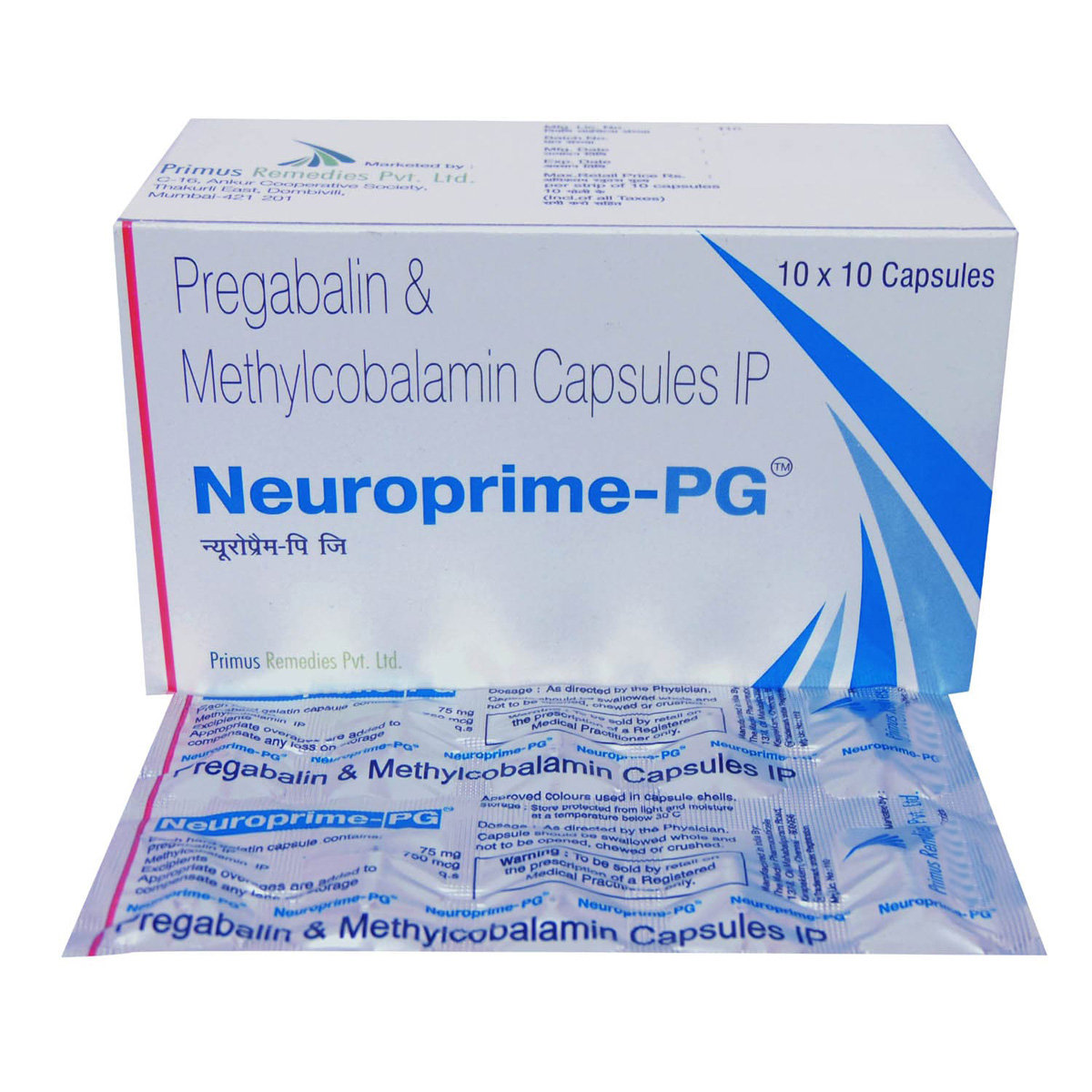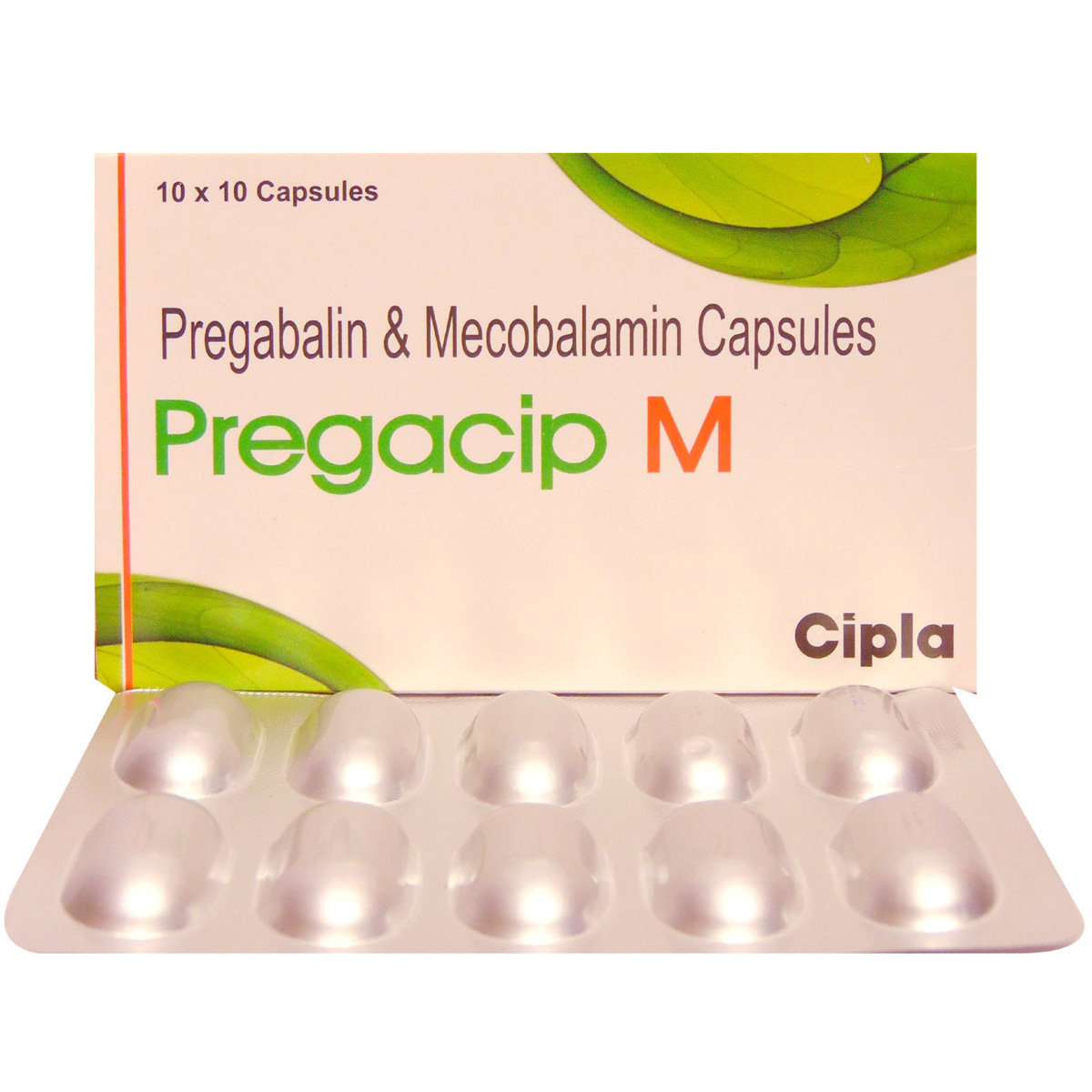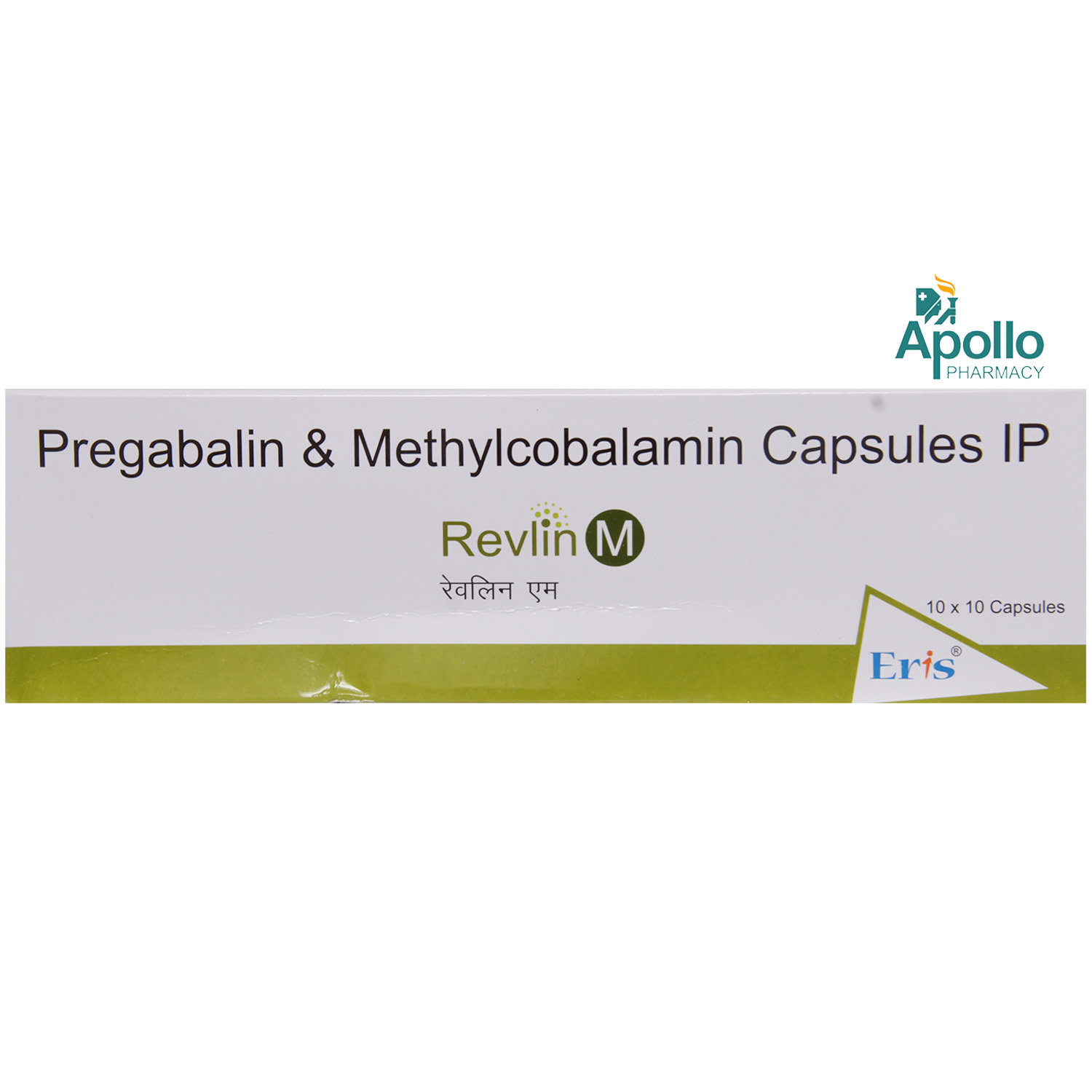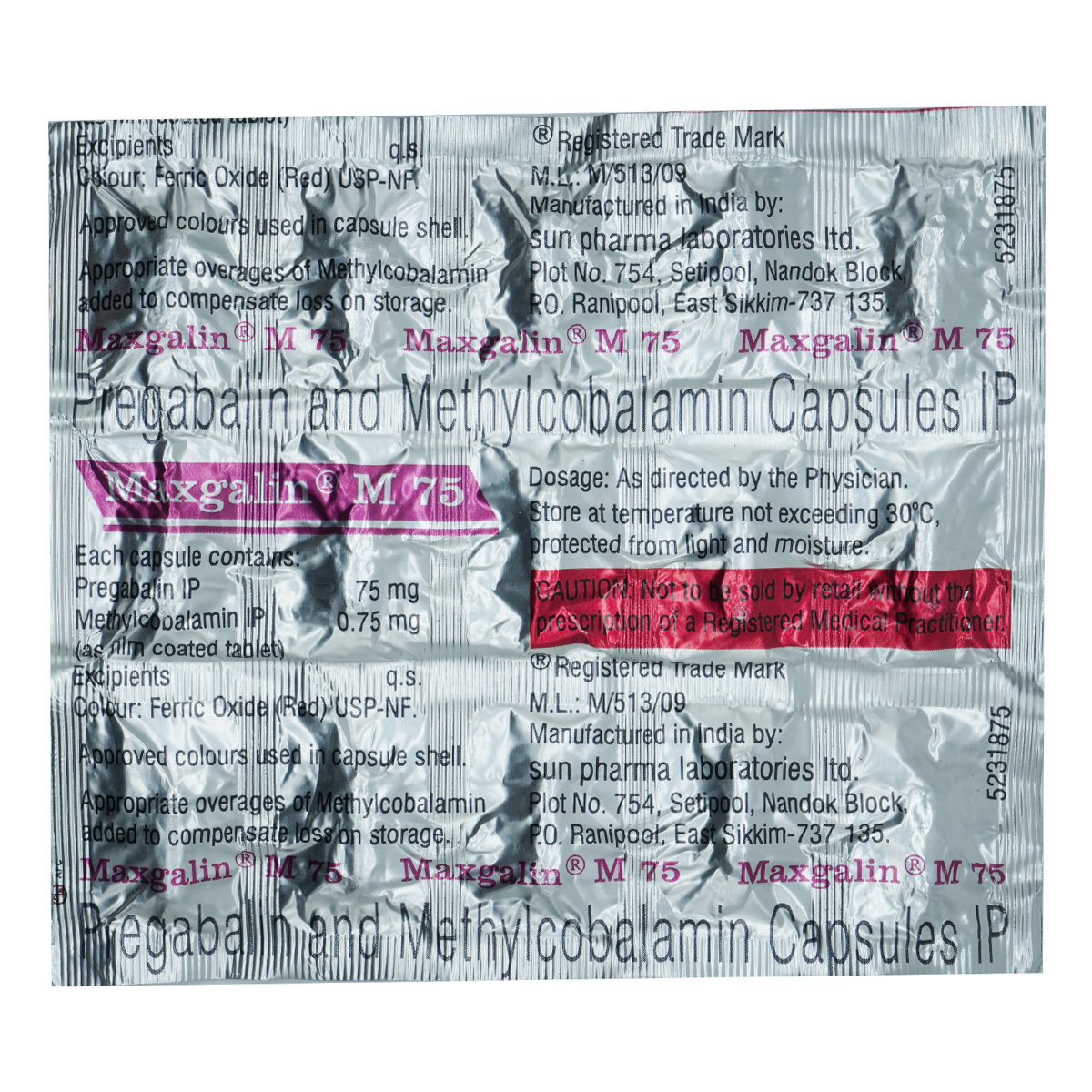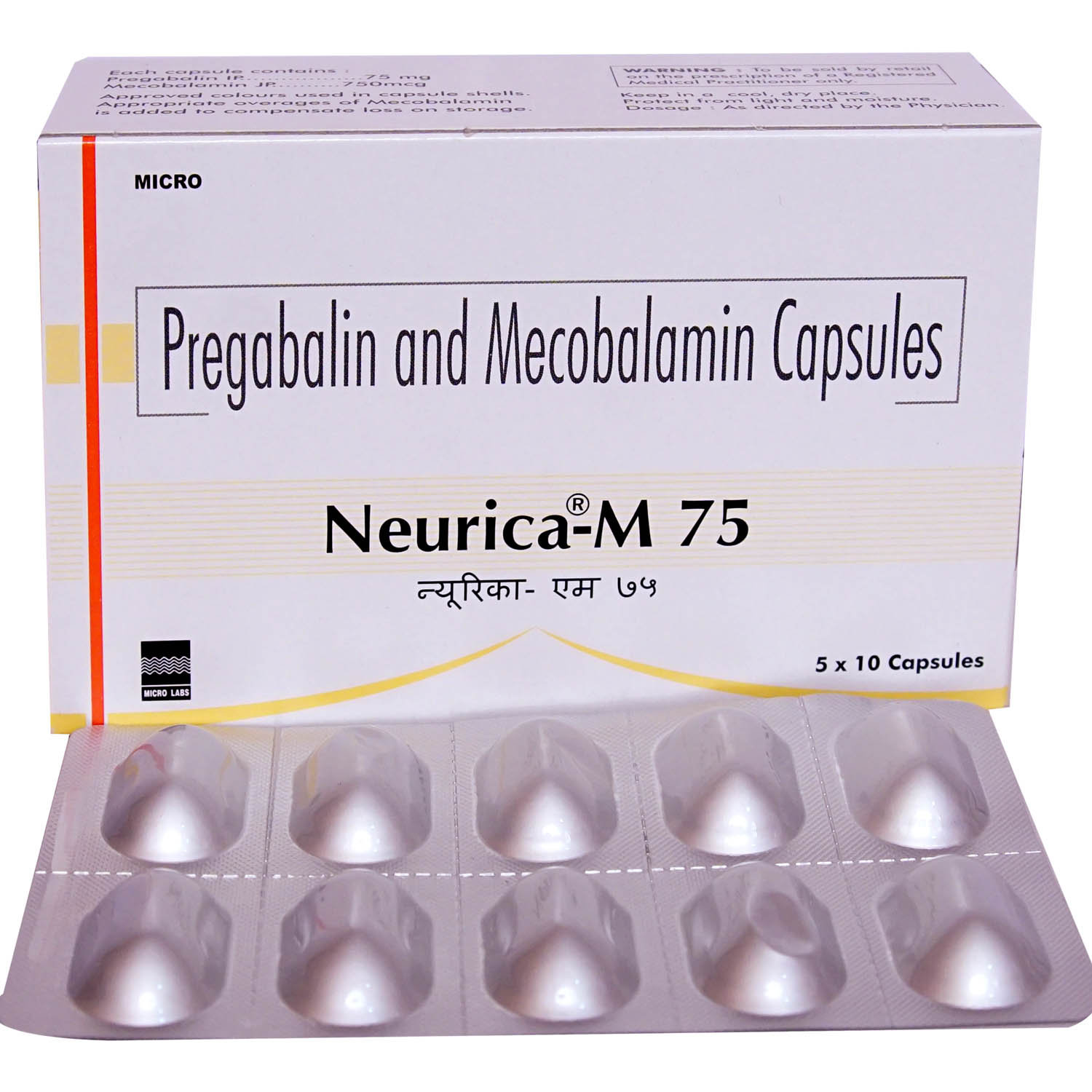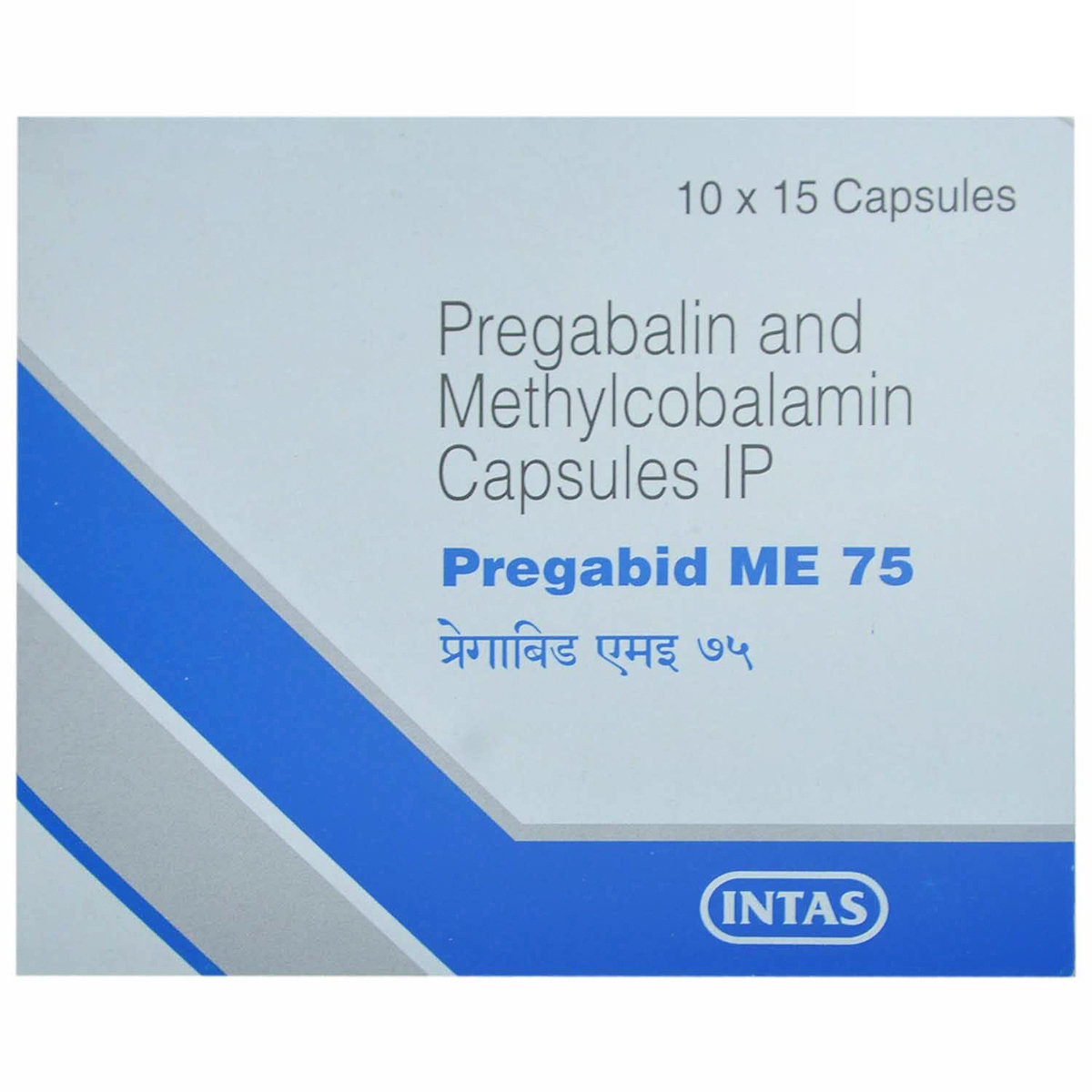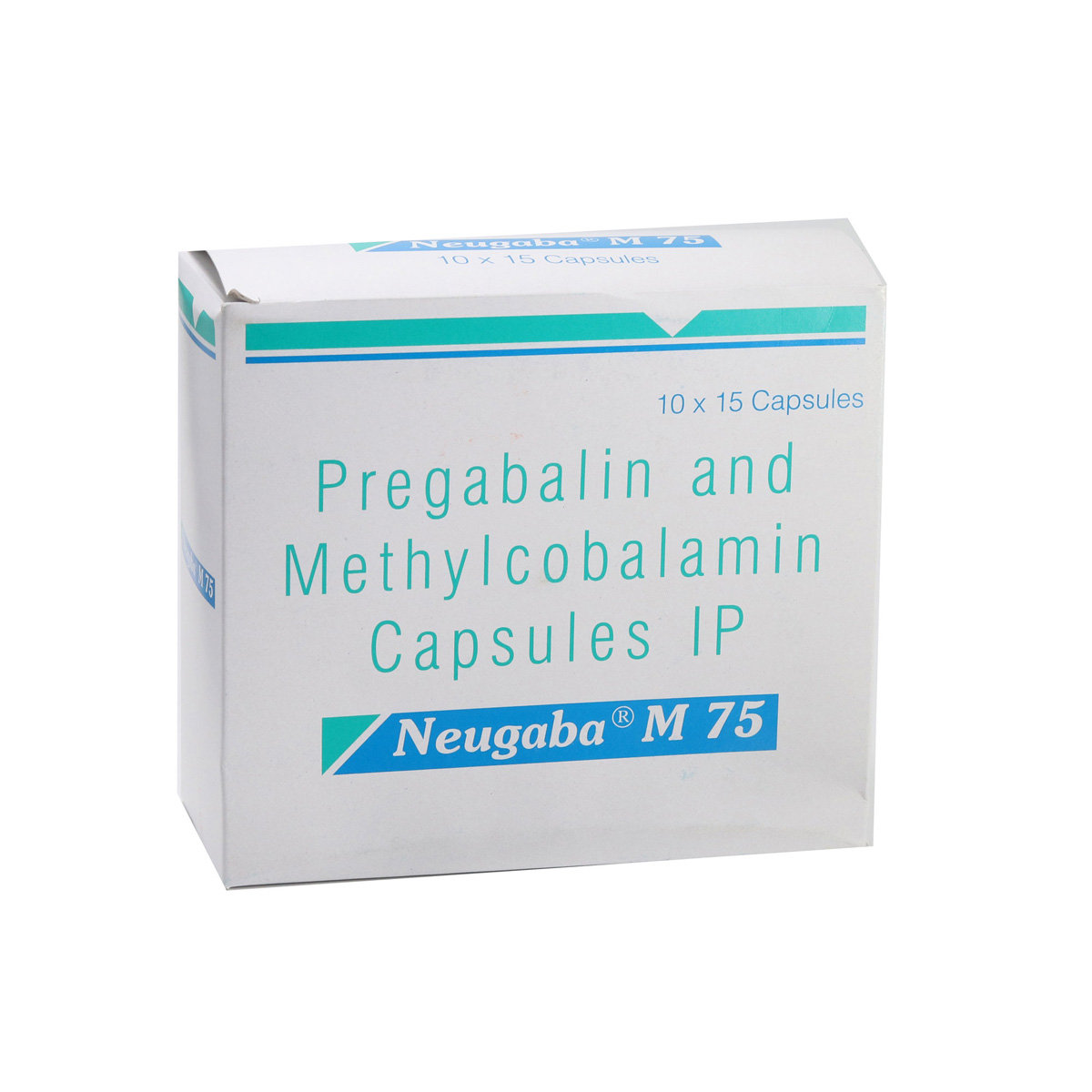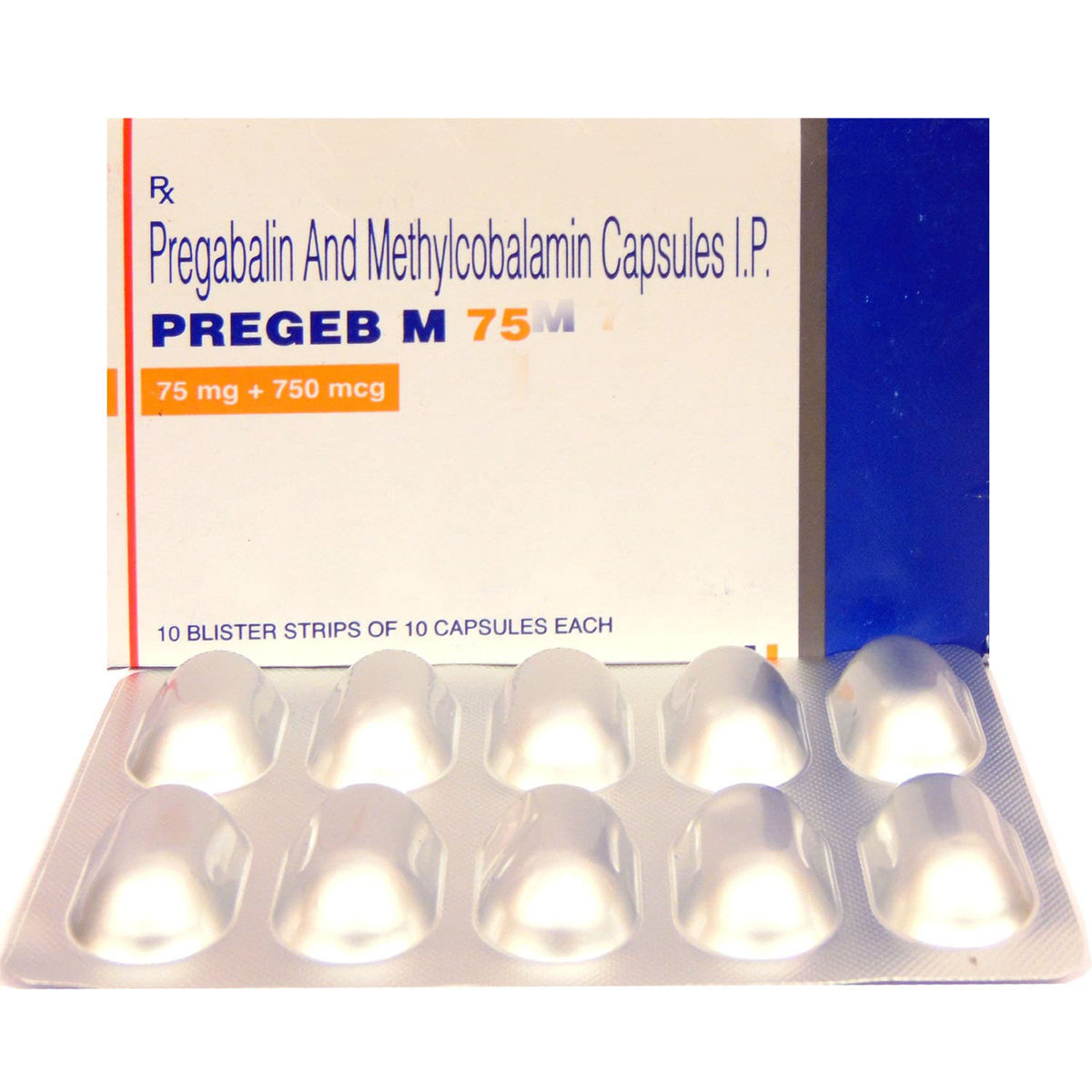Nervibine Capsule 10's
MRP ₹168.5
(Inclusive of all Taxes)
₹25.3 Cashback (15%)
Provide Delivery Location
Online payment accepted
 Prescription drug
Prescription drugWhats That
Composition :
Manufacturer/Marketer :
Consume Type :
Expires on or after :
Return Policy :
About Nervibine Capsule
Nervibine Capsule belongs to the class of medications ‘anticonvulsants’ used in the treatment of neuropathic pain. Neuropathic pain is a chronic (long-term) progressive nerve disease that causes nerve pain due to nerve damage or the nervous system's malfunctioning. It is mostly seen in patients who had suffered a trauma or nerve injury, diabetes, vitamin deficiencies, cancer, multiple sclerosis (disease of the brain and spinal cord), shingles (a viral infection), and HIV.
Nervibine Capsule is a combination of two medicines: Pregabalin and Methylcobalamin. Pregabalin acts by decreasing the pain signals sent by a damaged nerve in the body. On the other hand, Methylcobalamin helps rejuvenate and protect damaged nerve cells by producing a substance called myelin (outer protective layer of nerve cell - neuron).
You should take this medicine as prescribed by your doctor. The common side-effects of Nervibine Capsule are dizziness, drowsiness, headache, anorexia (loss of appetite), nausea or vomiting, diarrhea, headache, hot sensation (burning pain), vision problems, and diaphoresis (sweating). Inform your doctor if any of these side effects persist.
Do not take Nervibine Capsule if you are allergic to ‘Pregabalin’ and ‘Methylcobalamin’ or any contents before taking Nervibine Capsule if you have a history of heart diseases, liver or kidney disease, alcoholism, or drug abuse. It should not be used in children and adolescents below 18 years. Inform your doctor if you are pregnant and breastfeeding. Do not drive or operate heavy machinery as Nervibine Capsule may cause dizziness or drowsiness. Nervibine Capsule contains lactose, so inform your doctor if you have any intolerance to sugars. Do not discontinue treatment without telling your doctor.
Uses of Nervibine Capsule
Directions for Use
Key Benefits
Nervibine Capsule is a combination of two drugs: Pregabalin and Methylcobalamin. Pregabalin is an anticonvulsant that affects the brain's chemicals that send pain signals across the nervous system. It works by binding to the specific site on voltage-gated calcium channels (responsible for excitatory response), thereby decreasing brain activity. This effect helps in relieving nerve pain and lowers the risk of seizures. On the other hand, Methylcobalamin is a form of vitamin B12 that helps rejuvenate and protect damaged nerve cells by producing a substance called myelin (outer protective layer of nerve cells). Together, Nervibine Capsule helps in providing relief from neuropathic pain and improved nerve signal conduction.
Storage
- Inform your doctor about dizziness symptoms. They may adjust your medication regimen or prescribe additional medications to manage symptoms.
- Follow your doctor's instructions for taking medication, and take it at the same time every day to minimize dizziness.
- When standing up, do so slowly and carefully to avoid sudden dizziness.
- Avoid making sudden movements, such as turning or bending quickly, which can exacerbate dizziness.
- Drink plenty of water throughout the day to stay hydrated and help alleviate dizziness symptoms.
- If you're feeling dizzy, sit or lie down and rest until the dizziness passes.
- Track when dizziness occurs and any factors that may trigger it, and share this information with your doctor to help manage symptoms.
- Rest well; get enough sleep.
- Eat a balanced diet and drink enough water.
- Manage stress with yoga and meditation.
- Limit alcohol and caffeine.
- Physical activities like walking or jogging might help boost energy and make you feel less tired.
Drug Warnings
Nervibine Capsule may increase the risk of heart failure in patients with heart diseases. It may cause dizziness and somnolence (sleepiness). So, it might increase the risk of accidental injury in elderly patients. Nervibine Capsule may also cause temporary vision problems. However, if this condition is persistent, consult your doctor immediately. Patients with diabetes who gain weight with Nervibine Capsule may need a change in diabetic medicines. If you notice decreased urination while taking Nervibine Capsule , inform your doctor as Nervibine Capsule may cause kidney failure in some cases. It may increase suicidal tendencies, though it is rare. You may experience convulsions after discontinuing Nervibine Capsule . In such cases, inform your doctor immediately.
Drug-Drug Interactions
Drug-Drug Interactions
Login/Sign Up
When Nervibine Capsule and Esketamine are taken together, it may increase the risk of side effects.
How to manage the interaction:
Although taking Nervibine Capsule and Esketamine together can result in an interaction, it can be taken if a doctor has prescribed it. However, if you experience symptoms such as drowsiness, confusion, difficulty concentrating, and impairment in thinking, judgment, reaction speed, and motor coordination. Do not exceed the doses, frequency, or duration of usage advised by a doctor. Avoid driving or operating dangerous machinery. Do not stop using any medications without talking to a doctor.
When Tramadol is used with Nervibine Capsule, it may possibly lead to side effects such as respiratory difficulties, unconsciousness.
How to manage the interaction:
Although taking tramadol and Nervibine Capsule together can result in an interaction, it can be taken if a doctor has prescribed it. However, if you experience impaired judgment, reaction time, and motor coordination, dizziness, sleepiness, and difficulty concentrating, consult the doctor immediately. Do not exceed the doses, frequency, or duration of usage advised by a doctor. Avoid driving or operating dangerous machinery. Do not stop using any medications without talking to a doctor.
Using Nervibine Capsule together with Nalbuphine causes central nervous system depression (a physiological state that can result in a decreased rate of breathing, decreased heart rate and loss of consciousness).
How to manage the interaction:
Although taking Nalbuphine and Nervibine Capsule together can result in an interaction, it can be taken if a doctor has prescribed it. However, if you experience impaired judgment, reaction time, and motor coordination, dizziness, sleepiness, and difficulty concentrating, consult the doctor immediately. Do not exceed the doses, frequency, or duration of usage advised by a doctor. Avoid driving or operating dangerous machinery. Do not stop using any medications without talking to a doctor.
Using Nervibine Capsule together with Pethidine causes central nervous system depression (a physiological state that can result in a decreased rate of breathing, decreased heart rate and loss of consciousness).
How to manage the interaction:
Although taking pethidine and Nervibine Capsule together can result in an interaction, it can be taken if a doctor has prescribed it. However, if you experience impaired judgment, reaction time, and motor coordination, dizziness, sleepiness, and difficulty concentrating, consult the doctor immediately. Do not exceed the doses, frequency, or duration of usage advised by a doctor. Avoid driving or operating dangerous machinery. Do not stop using any medications without talking to a doctor.
Using Nervibine Capsule together with Dezocine causes central nervous system depression (a physiological state that can result in a decreased rate of breathing, decreased heart rate and loss of consciousness).
How to manage the interaction:
Although taking Dezocine and Nervibine Capsule together can result in an interaction, it can be taken if a doctor has prescribed it. However, if you experience impaired judgment, reaction time, and motor coordination, dizziness, sleepiness, and difficulty concentrating, consult the doctor immediately. Do not exceed the doses, frequency, or duration of usage advised by a doctor. Avoid driving or operating dangerous machinery. Do not stop using any medications without talking to a doctor.
Using Sodium oxybate together with Nervibine Capsule may increase the risk of side effects.
How to manage the interaction:
Although taking Nervibine Capsule with Sodium oxybate together can result in an interaction, it can be taken if a doctor has prescribed it. However, if you experience drowsiness, dizziness, lightheadedness, confusion, slow or shallow breathing, and impairment in thinking, judgment, and motor coordination, consult the doctor. For at least six hours after taking sodium oxybate, avoid operating machinery or engaging in potentially dangerous activities. Also, be careful when getting up from a sitting or lying down posture. Do not stop using any medications without talking to a doctor.
Using Nervibine Capsule together with Oxycodone causes central nervous system depression (a physiological state that can result in a decreased rate of breathing, decreased heart rate and loss of consciousness).
How to manage the interaction:
Although taking oxycodone and Nervibine Capsule together can result in an interaction, it can be taken if a doctor has prescribed it. However, if you experience impaired judgment, reaction time, and motor coordination, dizziness, sleepiness, and difficulty concentrating, consult the doctor immediately. Do not exceed the doses, frequency, or duration of usage advised by a doctor. Avoid driving or operating dangerous machinery. Do not stop using any medications without talking to a doctor.
Using Nervibine Capsule together with Fentanyl can increase the risk of side effects.
How to manage the interaction:
Although taking fentanyl together with Nervibine Capsule can result in an interaction, they can be taken together if prescribed by a doctor. However, consult a doctor if you have dizziness, sleepiness, difficulty concentrating, or impairment in judgment. Do not stop taking any medication without consulting a doctor.
Using Nervibine Capsule together with Butorphanol causes central nervous system depression (a physiological state that can result in a decreased rate of breathing, decreased heart rate, and loss of consciousness).
How to manage the interaction:
Although taking Butorphanol and Nervibine Capsule together can result in an interaction, it can be taken if a doctor has prescribed it. If you experience impaired judgment, reaction time, and motor coordination, dizziness, sleepiness, and difficulty concentrating, consult the doctor immediately. Do not exceed the doses, frequency, or duration of usage advised by a doctor. Avoid driving or operating dangerous machinery. Do not stop using any medications without talking to a doctor.
Using Tapentadol together with Nervibine Capsule may cause central nervous system depression (a physiological state that can result in a decreased rate of breathing, decreased heart rate, and loss of consciousness).
How to manage the interaction:
Taking Nervibine Capsule with Tapentadol can result in an interaction, it can be taken if a doctor has advised it. Contact a doctor immediately if you experience signs such as drowsiness, lightheadedness, palpitations, confusion, severe weakness, or difficulty breathing. Do not exceed the doses or frequency and duration of use advised by the doctor. Do not discontinue any medications without consulting a doctor.
Drug-Food Interactions
Drug-Food Interactions
Login/Sign Up
Diet & Lifestyle Advise
- Include food rich in vitamin B and D in your diet.
- Include cayenne pepper in your diet as it can help in lowering neuropathic pain.
- Exercising regularly helps in improving overall health and combating pain.
- Rest well, get plenty of sleep.
- Try taking a warm bath as it can be soothing.
- Avoid smoking and alcohol consumption.
- Meditation and yoga can help lower stress, decrease pain sensitivity, and improves coping skills.
- Acupuncture can be helpful by stimulating pressure points.
- Using essential oils for massages can help increase circulation.
Side Effects of Nervibine Capsule
- Dizziness
- Drowsiness
- Headache
- Anorexia (loss of appetite)
- Nausea or vomiting
- Diarrhea
- Headache
- Sore throat
- Vision problems
- Hot sensation (burning pain)
- Diaphoresis (sweating)
- Weight gain
Habit Forming
Therapeutic Class
All Substitutes & Brand Comparisons
RX
Not for online saleM-Strong PG Capsule 15's
Lloyd Healthcare Pvt Ltd
₹195.5
(₹11.73 per unit)
22% CHEAPERRX
Not for online salePregabanyl-M Capsule 10's
Leeford Healthcare Ltd
₹131
(₹11.79 per unit)
22% CHEAPERRX
Not for online saleMahagaba M 75 Capsule 10's
Mankind Pharma Pvt Ltd
₹154.5
(₹13.91 per unit)
8% CHEAPER
Drug-Diseases Interactions
Drug-Diseases Interactions
Login/Sign Up
FAQs
Drug-Drug Interactions Checker List
- OXYCODONE
- LORAZEPAM
- OMEPRAZOLE
- COLCHICINE
- NEOMYCIN
Special Advise
- Nervibine Capsule may increase suicidal thoughts. Extreme caution is advised with people suffering from suicidal tendencies or psychological problems.
- Nervibine Capsule is known to cause dizziness and sleepiness, so it is advised to refrain from driving or doing any work that requires attention or concentration.
Disease/Condition Glossary
Neuropathic pain: Neuropathic pain is caused due to damage to sensory nerves. It is caused by chronic progressive nerve disease, infection, or injury. The pain could be intermittent or continuous, which is felt as a prickling, stabbing, tingling, or burning sensation. A feeling of numbness and loss of sense is also a common symptom of neuropathic pain. Usually, the body sends the pain signals when there is an injury, but with neuropathic pain, the pain is not triggered by an injury, the body unpromptedly sends the pain signals. Symptoms include spontaneous, untriggered pain, unpleasant feeling, shooting, burning or stabbing pain, difficulty resting or sleeping, and evoked pain (pain caused by events usually not painful).

Have a query?
Alcohol
Safe if prescribed
Alcohol may worsen the condition by increasing the risk of side-effects.
Pregnancy
Consult your doctor
Nervibine Capsule is a category C medicine. It is not recommended for use in pregnant women unless the doctor thinks the benefits outweigh the risks.
Breast Feeding
Consult your doctor
Nervibine Capsule should be used with caution in breastfeeding mothers unless the doctor thinks the benefits outweigh the risks.
Driving
Safe if prescribed
Nervibine Capsule may cause dizziness and drowsiness. So, avoid driving or operating heavy machinery while using Nervibine Capsule .
Liver
Consult your doctor
Nervibine Capsule should be used with caution in patients with liver diseases. Dose adjustments may be necessary.
Kidney
Consult your doctor
Nervibine Capsule should be used with caution in patients with kidney diseases. Dose adjustments may be necessary
Children
Safe if prescribed
Nervibine Capsule is not recommended for anyone below the age of 18 years.




